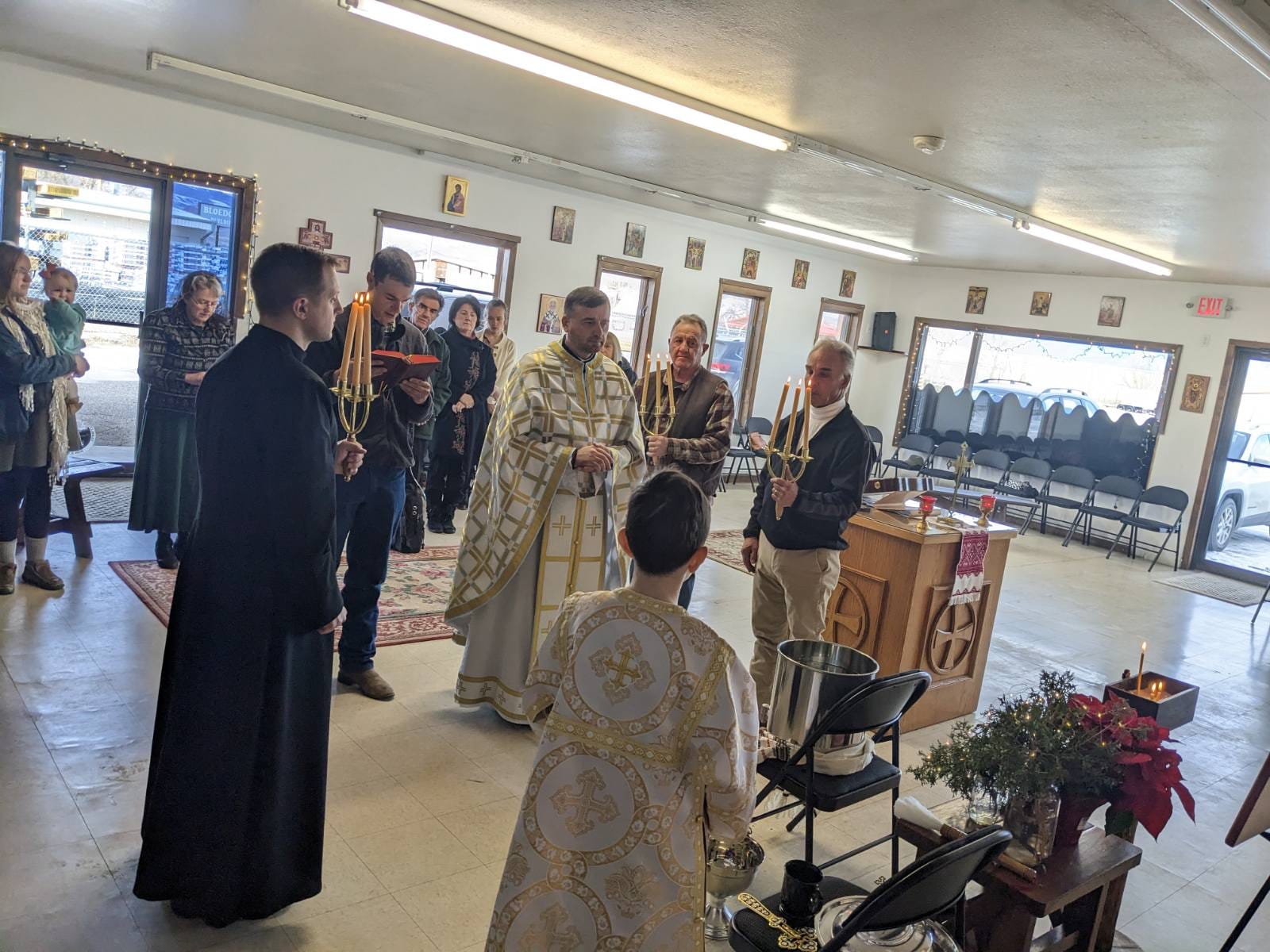In addition to the Holy Mysteries established by Jesus Christ, the Church has introduced various blessings for God’s help in human life and to limit the influence of evil spirits. For example, there are blessings for fields, beehives, homes, herbs, vegetables, and more. Among these blessings, a special place is given to pastoral visits with Jordan water. This practice originates from our Lord Jesus Christ. From the Holy Scriptures, we know that Jesus visited homes. He stayed in the home of Lazarus, where Martha complained that her sister Mary did not help her serve at the table. He also visited the home of the tax collector Zacchaeus, who promised to make amends for the wrongs he had done. He was in the house of the Pharisee Simon, where He reproached him for not welcoming Him properly, while the sinful woman, Mary Magdalene, showed more humility and honor. If Christ did this, it is no surprise that the Church instructs priests to visit the homes of their parishioners.
“Whoever receives you receives Me” (Matt. 10:40), Jesus said to the Apostles. He also commanded: “When you enter a house, first say, ‘Peace to this house!’ If a person of peace is there, your peace will rest on them” (Luke 10:5-6). A priest’s house blessing is an act of public confession of faith and a sign of unity and connection between the home Church and the parish, diocesan, and universal Church.
The Church has long practiced the Great Blessing of Water to commemorate the Baptism of the Lord. The blessing of Jordan water began in the Church of Jerusalem and, in the 4th-5th centuries, was performed only there, where it was customary to go to the Jordan River for the water blessing. Later, this practice spread throughout the Church and is now done at rivers, lakes, springs, and wells, which is why it is called “going to the Jordan.”
The rite of blessing the water is attributed to the Apostle and Evangelist Matthew. Several prayers for the blessing of water were composed by St. Proclus, the Archbishop of Constantinople, and eventually, the rite was formed by St. Sophronius, Patriarch of Jerusalem.
The holiness of the water is evident because it remains fresh and does not spoil for a long time. Even in the 4th century, St. John Chrysostom said: “Christ was baptized and sanctified the nature of water, and therefore, on the Feast of the Baptism, all who have gathered water take it home and keep it throughout the year.” The Church uses this holy water for sprinkling churches and homes. With this water and the Cross, priests visit parishioners’ homes on the Feast of Theophany, sprinkling their homes and spreading blessings and sanctification.
1. A priest’s house blessing with Jordan water is a tradition of the Church for a personal meeting and acquaintance with the priest.
2. These visits take place from the Feast of the Theophany (January 6) to the Feast of the Presentation of the Lord (February 2), mostly in the evening on weekdays and during the day on weekends.
3. The visit includes a shared prayer, sprinkling of the house with blessed water, and time spent with the priest. It is an opportunity for parishioners to ask the priest about matters of faith, morality, or the life of the Church, and for the priest to learn more about the family and its needs.
4. The prayer is held in the living room. A candle is lit on the table or in front of an icon, and everyone present in the house participates in the prayer.
5. The priest symbolizes the presence of Jesus Christ Himself, because Jesus said, “Whoever receives you, receives Me” (Matt. 10:40).
6. Sprinkling the home with Jordan water symbolizes the cleansing of the house and all its inhabitants from evil by the power of Jesus Christ.
7. During the Jordan house blessing, you can learn about the needs of the parish and projects that you can join.
If you would like Fr. Roman to visit your home, please send him a private message at: 773 655 14 28, or email him at: pastor@ugccsf.org. Please include: a) your name, surname, and mobile number; b) your address, approximate date, and time when you are ready to receive the priest.



